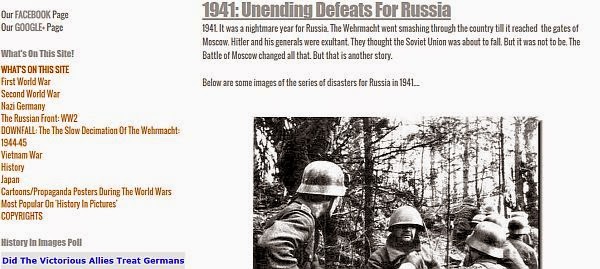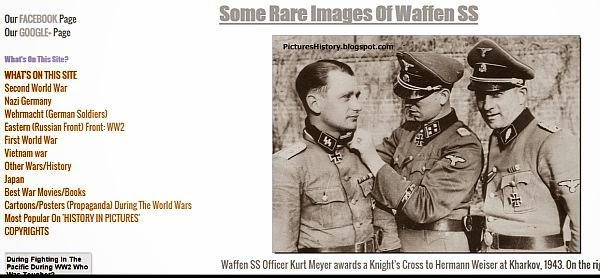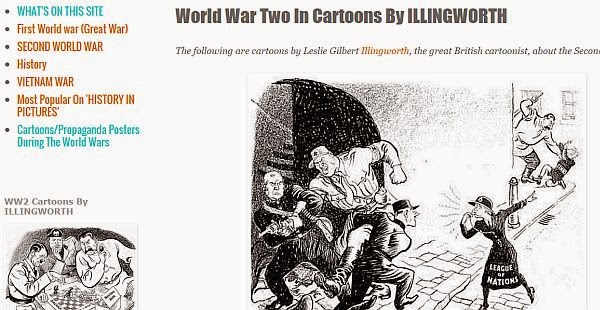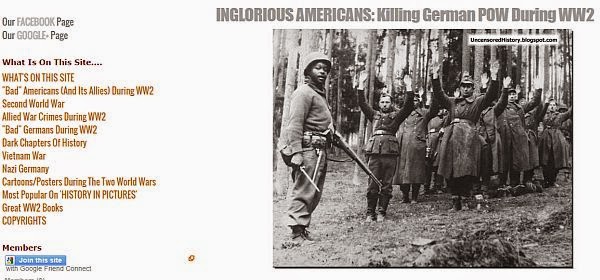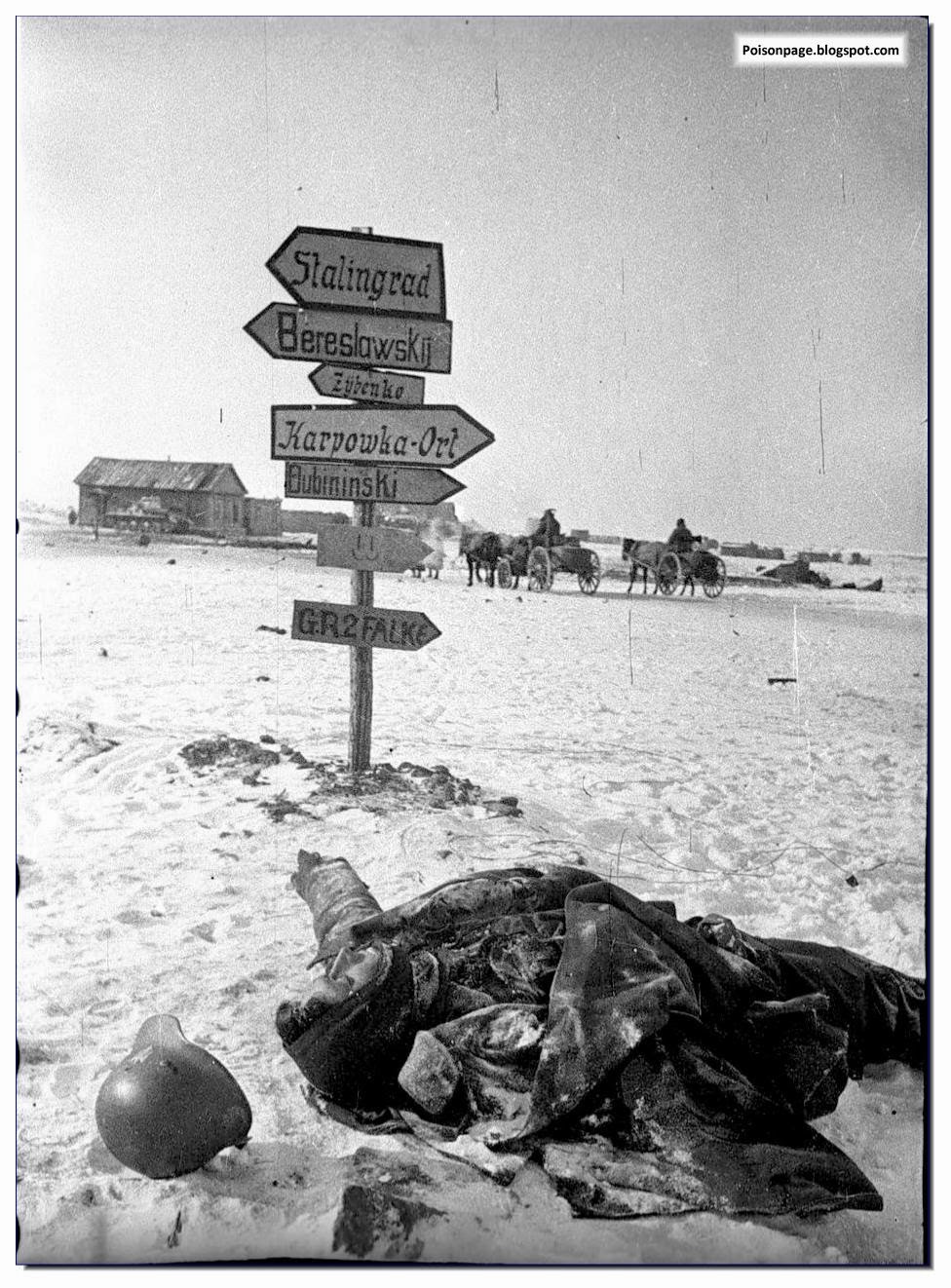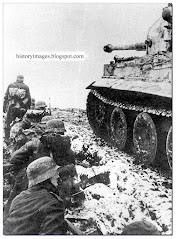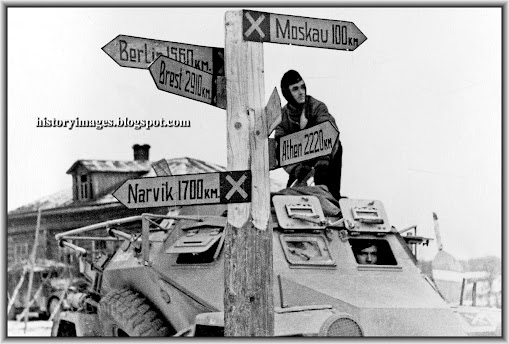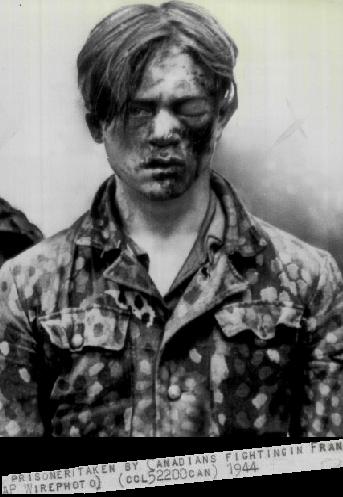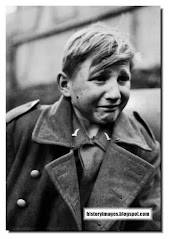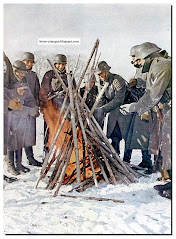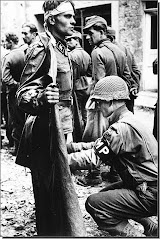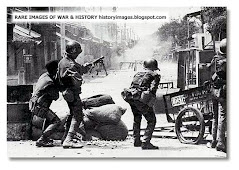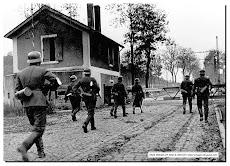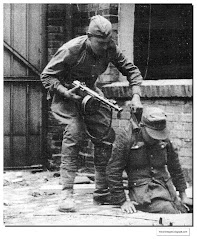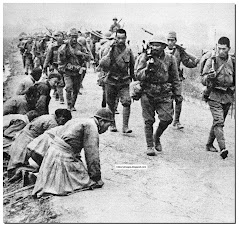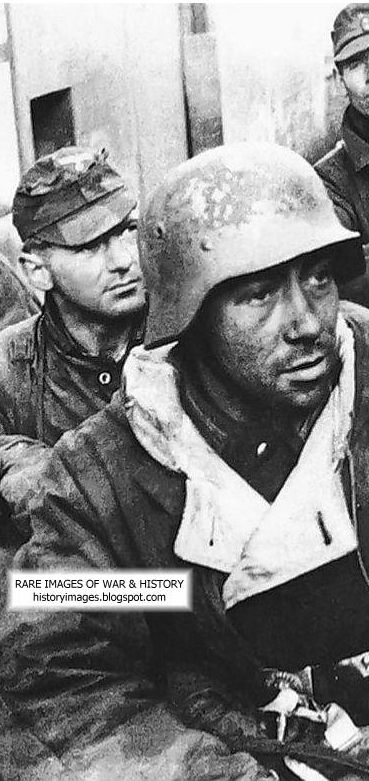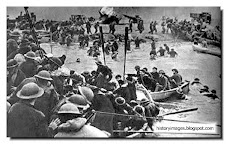Spanish Civil War(1936 – 39) Military revolt against the government of Spain. After the 1936 elections produced a Popular Front government supported mainly by left-wing parties, a military uprising began in garrison towns throughout Spain, led by the rebel Nationalists and supported by conservative elements in the clergy, military, and landowners as well as the fascist Falange.
Seeking aid from abroad, the Nationalists received troops, tanks, and planes from Nazi Germany and Italy, which used Spain as a testing ground for new methods of tank and air warfare.
 The guy who finally won the Spanish Civil War: General Franco.
The guy who finally won the Spanish Civil War: General Franco.The ruling Republican government, led by the socialist premiers Francisco Largo Caballero and Juan Negrín (1894 – 1956) and the liberal president Manuel Azaña y Díaz, was supported by workers and many in the educated middle class as well as militant anarchists and communists. Government forces put down the uprising in most regions except parts of northwestern and southwestern Spain, where the Nationalists held control and named Francisco Franco head of state.
GERMANY TESTS ITS NEW PLANES
Hitler sent his new Luftwaffe planes to support Franco. As German air chief Hermann Goering testified at his trial after World War II: "The Spanish Civil War gave me an opportunity to put my young air force to the test, and a means for my men to gain experience." The so-called 'Condor Legion' airplanes bombarded the Spanish town of Guernica.
Noel Monks was a correspondent covering the civil war in Spain for the "London Daily Express." He was the first reporter to arrive on the scene after the bombing. We join his story as he and other reporters drive along a dusty Spanish road:
"We were about eighteen miles east of Guernica when Anton pulled to the side of the road jammed on the brakes and started shouting. He pointed wildly ahead, and my heart shot into my mouth, when I looked. Over the top of some small hills appeared a flock of planes. A dozen or so bombers were flying high. But down much lower, seeming just to skim the treetops were six Heinkel 52 fighters. The bombers flew on towards Guernica but the Heinkels, out for random plunder, spotted our car, and, wheeling like a flock of homing pigeons, they lined up the road - and our car.
Anton and I flung ourselves into a bomb hole, twenty yards to the side of the road. It was half filed with water, and we sprawled in the mud. We half knelt, half stood, with our heads buried in the muddy side of the carter.After one good look at the Heinkels, I didn't look up again until they had gone. That seemed hours later, but it was probably less than twenty minutes. The planes made several runs along the road. Machine-gun bullets plopped into the mud ahead, behind, all around us. I began to shiver from sheer fright. Only the day before Steer, an old hand now, had 'briefed' me about being strafed. 'Lie still and as flat as you can. But don't get up and start running, or you'll be bowled over for certain.'When the Heinkels departed, out of ammunition I presumed, Anton and I ran back to our car. Nearby a military car was burning fiercely. All we could do was drag two riddled bodies to the side of the road. I was trembling all over now, in the grip of the first real fear I'd ever experienced."SOURCE: eyewitnesstohistory
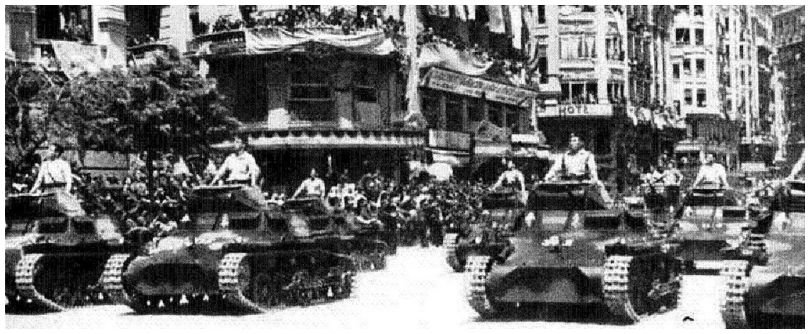 The victory parade by the Nationalists.
The victory parade by the Nationalists.MORE ON THE GUERNICA BOMBINGS
"... I saw the reflection of Guernica's flames in the sky."Monk and his fellow reporters drive on, traveling near Guernica where they can hear what they think may be the sounds of bombs. They continue to the city of Balboa, where after filling his report to London, Monk joins his colleagues for dinner. His story continues as his dinner is interrupted by the news from Guernica:"...a Government official, tears streaming down his face, burst into the dismal dining-room crying: 'Guernica is destroyed. The Germans bombed and bombed and bombed.' The time was about 9.30 p.m. Captain Roberts banged a huge fist on the table and said: 'Bloody swine.' Five minutes later I was in one of Mendiguren's limousines speeding towards Guernica. We were still a good ten miles away when I saw the reflection of Guernica's flames in the sky. As we drew nearer, on both sides of the road, men, women and children were sitting, dazed. I saw a priest in one group. I stopped the car and went up to him. 'What I happened, Father?' I asked. His face was blackened, his clothes in tatters. He couldn't talk. He just pointed to the flames, still about four miles away, then whispered: 'Aviones. . . bombas'. . . mucho, mucho.'...I was the first correspondent to reach Guernica, and was immediately pressed into service by some Basque soldiers collecting charred bodies that the flames had passed over. Some of the soldiers were sobbing like children. There were flames and-smoke and grit, and the smell of burning human flesh was nauseating. Houses were collapsing into the inferno.
In the Plaza, surrounded almost by a wall of fire, were about a hundred refugees. They were wailing and weeping and rocking to and fro. One middle-aged man spoke English. He told me: 'At four, before the-market closed, many aeroplanes came. They dropped bombs. Some came low and shot bullets into the streets. Father Aroriategui was wonderful. He prayed with the people in the Plaza while the bombs fell.'..
...The only things left standing were a church, a sacred Tree, symbol of the Basque people, and, just outside the town, a small munitions factory. There hadn't been a single anti-aircraft gun in the town. It had been mainly a fire raid.
...A sight that haunted me for weeks was the charred bodies of several women and children huddled together in what had been the cellar of a house. It had been a refugio."
 A Soviet adviser to the Republicans
A Soviet adviser to the RepublicansThe Republicans (also called loyalists) were sent material mainly by the Soviet Union, and the volunteer International Brigades also joined the Republicans. The two sides fought fierce and bloody skirmishes in a war of attrition. The Nationalist side gradually gained territory and by April 1938 succeeded in splitting Spain from east to west, causing 250,000 Republican forces to flee into France. In March 1939 the remaining Republican forces surrendered, and Madrid, beset by civil strife between communists and anticommunists, fell to the Nationalists on March 28. About 500,000 people died in the war. The war's end brought a period of dictatorship that lasted until the mid-1970s.
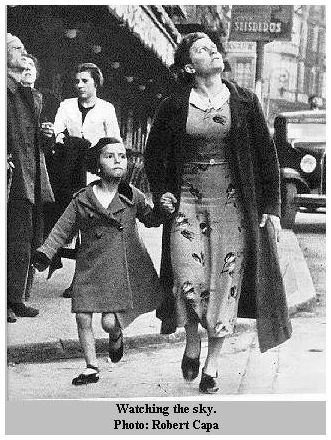 The Spanish people suffered the most during the civil war. The famous pic by famous American lens man, Robert Capa.
The Spanish people suffered the most during the civil war. The famous pic by famous American lens man, Robert Capa.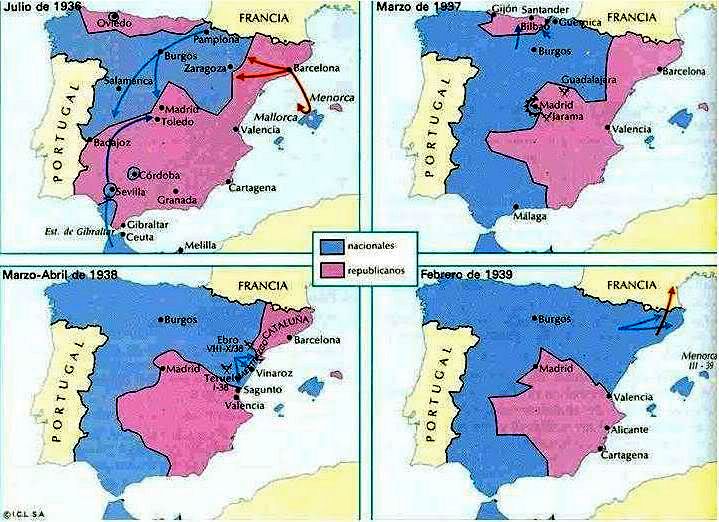 That is how the war went. The blue increases over the years. Nationalists winning over the Republicans.
That is how the war went. The blue increases over the years. Nationalists winning over the Republicans.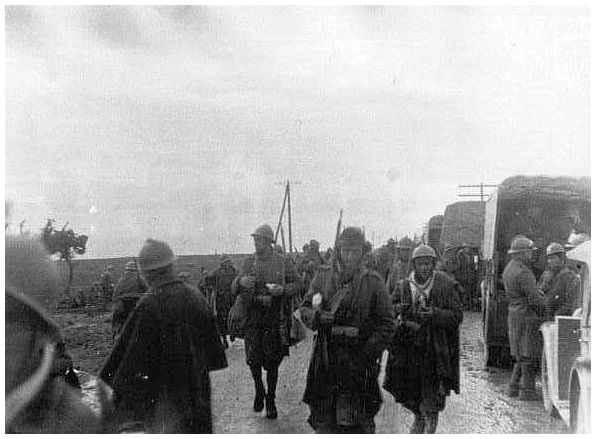 The Italians feel the cold.
The Italians feel the cold. The Germans had a large presence.
The Germans had a large presence.From the first and throughout the war, Italy and Germany aided Franco with an abundance of planes, tanks, and other materiel. Germany sent some 10,000 aviators and technicians; Italy sent large numbers of "volunteers," probably about 70,000. Great Britain and France, anxious to prevent a general European conflagration, proposed a nonintervention pact, which was signed in Aug., 1936, by 27 nations. The signatories included Italy, Germany, and the USSR, all of whom failed to keep their promises. The Spanish republic became dependent for supplies on the Soviet Union, which used its military aid to achieve its own political goals.
 There was much death and destruction.
There was much death and destruction.Both sides repressed opposition; together, they executed or assassinated more than 50,000 suspected enemies to their respective causes.
Seeking aid from abroad, the Nationalists received troops, tanks, and planes from Nazi Germany and Italy, which used Spain as a testing ground for new methods of tank and air warfare.
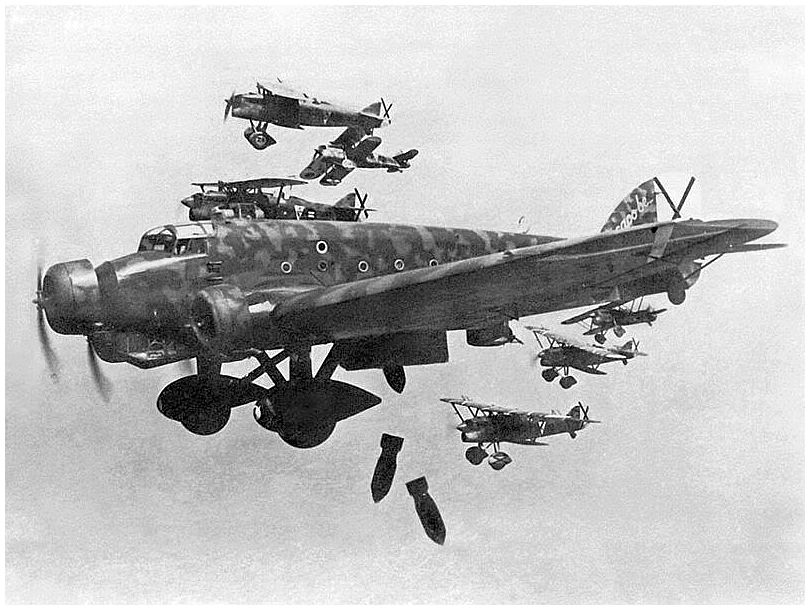
The Spanish Civil War was a golden opportunity for all countries to try out their new weapons and war tactics.
 Rough fighting on the streets.
Rough fighting on the streets.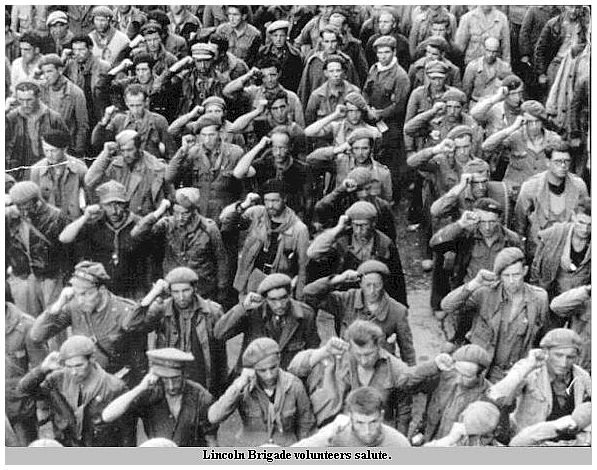 The Anglo-American 'Lincoln Brigade'
The Anglo-American 'Lincoln Brigade'For Germany and Italy the Spanish civil war served as a testing ground for the blitzkrieg and other techniques of warfare that would be used in World War II; for the European democracies it was another step down the road of appeasement; and for the politically conscious youth of the 1930s who joined the International Brigades, saving the Spanish republic was the idealistic cause of the era, a cause to which many gave their lives. For the Spanish people the civil war was an encounter whose huge toll of lives and material devastation were unparalleled in centuries of Spanish history.














